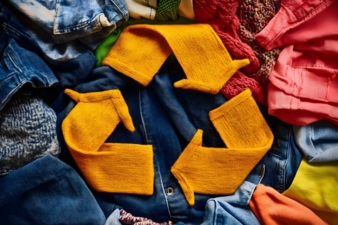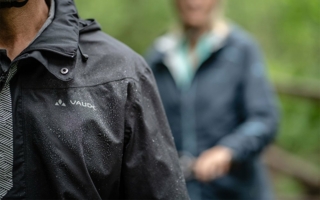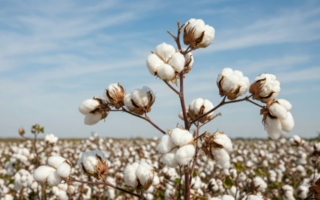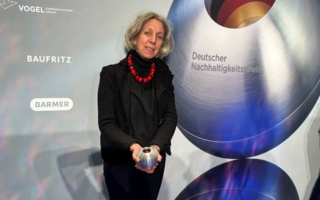26/11/2025 – Research Project — auf Deutsch lesen
RETRAKT: Paving the Way for Circular Economy in Textiles
The RETRAKT research project addresses the urgent need for transformation in the textile industry. By combining resilience engineering, compliance management, and digital innovation, it aims to enable circular and resource-efficient production by 2030.
The Challenge: Textile Waste and Resource Consumption
The textile industry faces immense challenges as it transitions from a linear to a circular economy. Globally, 120 million tons of textile waste are generated annually, yet only 1% is recycled into new clothing. In Europe alone, the textile sector consumes 676 million tons of primary raw materials each year, contributing significantly to environmental degradation. The European Green Deal sets ambitious goals for the sector, aiming to establish resource-efficient and circular production systems by 2030. RETRAKT – “Resilient Transformation Management for Circular Economy in the Textile Sector” – is a pioneering research project addressing these issues.
Resilience Engineering: Empowering Employees for Change
RETRAKT places employees at the center of the transformation process. The project leverages resilience engineering, a socio-technical approach that emphasizes adaptability and problem-solving under dynamic and complex conditions. Unlike traditional management methods focused on error prevention, resilience engineering equips organizations and their workforce to navigate uncertainty and implement new processes effectively. By analyzing existing workflows in areas such as design, procurement, production, and data management, RETRAKT develops tools and methods that empower employees to meet the demands of circular production.
Compliance Management: Navigating Regulatory Complexity
The European Green Deal introduces stringent environmental regulations, including the EU Ecodesign Directive for textiles and apparel. RETRAKT systematically evaluates these new legal requirements and integrates them into operational processes. Effective compliance management is crucial for companies to adapt to these changes, ensuring that their products meet circular economy standards. RETRAKT’s approach includes practical implementation strategies that are transferable across the industry, helping businesses align with regulatory demands while maintaining efficiency.
Digital Innovation: Building a Cooperation Platform
A key component of RETRAKT is the development of a Digital Cooperation Platform. This platform facilitates collaboration across international textile value chains and supports the creation of a digital product passport for textiles and apparel. By fostering transparency and enabling data-driven decision-making, the platform aims to streamline the transition to circular production. Nicole Espey, project lead at the Institute for Textile Technology (RWTH Aachen), highlights the broader impact: “The transformation to a European circular economy offers the opportunity to create high-quality jobs in the textile and apparel sector.”
The Numbers Behind the Urgency
The environmental impact of textiles underscores the need for immediate action. Producing a single cotton T-shirt requires 2,700 liters of water, while the annual CO? emissions per person from textile consumption in Europe amount to 355 kilograms. With 160,000 companies and 1.5 million employees, the textile sector is a cornerstone of the European economy. RETRAKT aims to balance environmental sustainability with economic resilience.
Invitation to the RETRAKT Conference
On February 25, 2026, RETRAKT will host the “Join the Circle” conference in Aachen, bringing together stakeholders from across the textile industry. The event will showcase the latest developments in circular textiles and provide a platform for discussing solutions. Registration is free and open until December 18, 2025, via retrakt.de.
Project Partners Driving Innovation
RETRAKT is funded by the German Federal Ministry of Research, Technology, and Space and is supported by six key partners:
FOM University: Developing transformation concepts for circular value chains.
Institute for Textile Technology (RWTH Aachen): Leading compliance management and biotransformation efforts.
Center for Circular Economy and HumTec (RWTH Aachen): Facilitating innovation transfer on local and global scales.
i2solutions GmbH: Creating the Digital Cooperation Platform.
ORTOVOX SPORTARTIKEL GmbH: Implementing the EU Ecodesign Directive in practice.
Thorey Gera Textilveredelung GmbH: Adapting production processes to meet new legal requirements.
RETRAKT’s findings aim to extend beyond textiles, offering insights for other industries transitioning to circular economy models.





